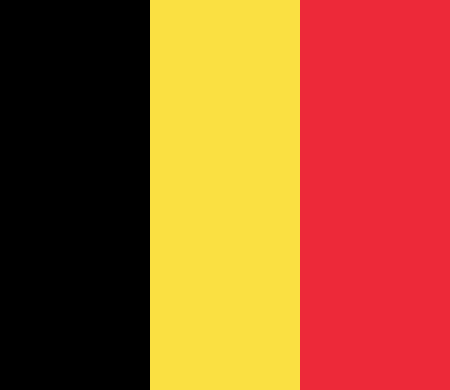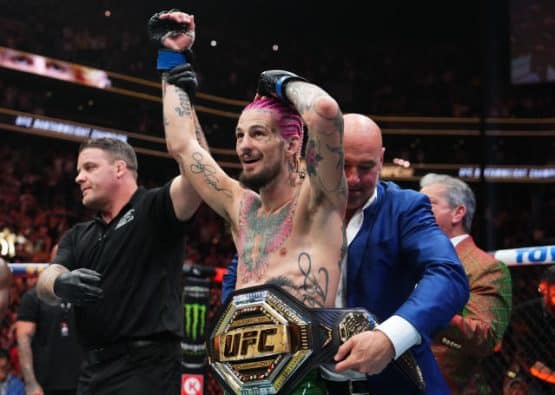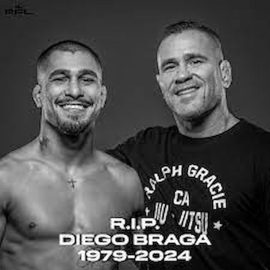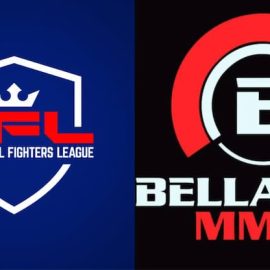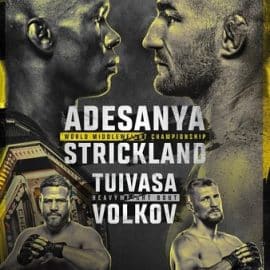Less than a decade ago, we were talking about the UK as if it were the wild west of MMA. Nobody knew the camps the British were coming from, but they were filing into the UFC at an increasing rate. Everybody was talking about the possibility of a British champion and how long it would take to happen. Now, this week, we have a card dominated by fighters from the UK.
The same could be said, albeit much more recently, about the Irish. At one point, even the most die-hard fan would have a hard time listing a handful of Irish fighters. Now, the most recognizable name in the sport carries an orange and green flag over his shoulders.
These stories stand as an illustration of how quickly the MMA landscape can change for a country. Although MMA continues to rise in popularity around the world, the sport is still in its infancy. This leaves plenty of opportunity for countries that have gone unnoticed within the sport to make their move.
One such country that has flown under the radar is Belgium. While they have seen a pair of their countrymen/women get a call to the big show, they have yet to break through in a meaningful way on an international scale. However, to hear it from the perspective of the fighters who live it, they’ve already come a long way and they might be headed for something big.
Where They Were
Not all that long ago, Belgium was an area that had little to no MMA scene. In fact, the understanding amongst those in the combat sports world was that MMA was barely separate from other disciplines. Few understood the difference in the necessary skills or a need to become well-rounded.
“MMA was not really seen as a different discipline. If you were a Thai boxer, why not try MMA? So you learn one takedown, some control on the ground and that is it,” Griet Eeckhout, a flyweight who’s fought for Canada’s TKO promotion as well as Belgium’s own 360 Fight Nights, said. “People from jiu jitsu or wrestling did not do MMA here at first. So most of the time you would get a stand up fight.”
Kelig Pinson, a bantamweight currently in the WCFL tournament to win a Invicta FC contract, agrees, citing the lack of structure in MMA training at the time.
“[At the time] there were only two or three real structures in Belgium. Some fighters trained together but it was hard to find serious and good places to train MMA. We had to find one club for boxing, one for BJJ,” Pinson said.

While Eeckhout and Pinson both pointed to the lack of understanding of a full-MMA style of training, others pointed at faulty promoting and managing as some of the reason MMA in Belgium lagged behind other countries. When Belgian MMA was in its infancy, some fighters were used as ways for gym owners to make a little extra money on the side rather than those training to become experts in their professions.
“I had bad experiences with teams that were only thinking about their own interest and about money, before thinking about long-term relationship and humans,” Pinson said.
This sentiment was shared with her by another of her countrymen. Donovan Desmae, an 11-4 lightweight fighting for Cage Warriors, also felt exploited by the game within the game.
“I only started six years ago, but at this time you had no one passionate enough and working for the growth of MMA, but only people looking to make money,” Desmae shared.
The lack of understanding of the sport of MMA in the cage and out likely lead to the delay of the growth of the sport. However, it could only hold it back for so long.
Where They Are
After the aforementioned earlier days, Belgium’s MMA scene took an uptick. A lot of this growth was due to the fact that Belgium got their first two MMA fighters into the UFC. Tarec Saffiedine, who now stands at 8-5 in the UFC’s talent-rich welterweight division, made his UFC debut in 2014. Not only was he the first Belgian on contract, but he also headlined the first three shows that he was on.
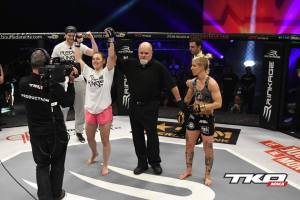
“The sport is getting more and more known through the general public because of our Belgian fighters like [Cindy] Dandois, [Tarec] Saffiedine, [Brian] Bouland and [Donovan] Desmae. Colleagues and clients are telling me when they saw something in the newspaper or on the television because there is more attention for our sport in the media,” Eeckhout said.
Dandois was the second to get her shot in the sport’s biggest company, although her stay only lasted a single fight.
Still, the debuts in the UFC paired with a pair of Cage Warriors veterans have been nothing but good for the sport. A particular spike in interest came from the recent performances in Cage Warriors. Along with Desmae, who picked up his second straight win at Cage Warriors 91, the headliner was also a Belgian. Bantamweight Brian Bouland picked up his second straight victory as he knocked out favorite Josh Reed in the first round of their main event clash. This, he claims, is leading the media’s charge in their coverage.
“Slowly but surely, as we say in French… We’ve got some newspaper articles after important wins and some journalists are more and more interested by us [MMA athletes]. By the way, Eleven Sports TV bought the rights for UFC and Cage Warriors events,” Bouland said.
The availability of MMA events to the Belgian public may just be the next step in what is needed for them to go from being recognized at home, to being recognized on the world stage.
Where They’re Going
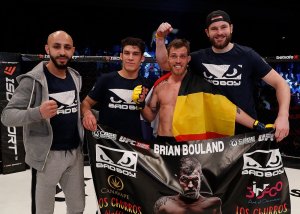
While young successful fighters like Desmae, Bouland, Pinson and Eeckhout are a first step towards international recognition, there are many other obstacles in the way. Among those obstacles is the training. Although they now have gyms that are competent at training in the art of MMA, there are still things that prevent them from reaching their peak.
“The first thing is that we have to stop thinking that we must leave the country and train in the USA to have a chance to be successful in MMA; if everybody stay in Belgium and start training together, we could grow and reach the elite level,” Desmae said.
For the sport to truly grow within the country, he likes the approach of Straight Blast Gym in Ireland. By assembling the best fighters in the country and getting high level training, it made others want to come to their gym rather than the other way around. Desmae believes that possibility exists already within Belgium. He’s not alone on this thought.
“Belgium just needs fighters who believe in themselves and who believe in their own country,” Bouland adds.
In addition to believing in themselves, many fighters feel that the media needs to be aware of their struggles and successes. If the media starts to pump up their brand, maybe these other goals will be realized.
“We need more exposure; Belgium need to believe in our sport. We need people who believe in us, who would support us, who would help promotions grow along with athletes. We need media exposure, we need the people to understand the good learnings (sic) behind the sometimes brutal images,” adds Pinson.
Because while they have certainly made huge advancements in the way their country views the sport, there is still plenty of ways to go.
“We don’t have the support from local media and sponsors like in UK or USA. And people here don’t know much about the sport yet, as a result,” Bouland said.
Ultimately though, each of these fighters knows that in order to get media and other fighters to recognize these two things, they need results.
“We have loads of dedicated and talented people,” Eeckhout boasts.
And Pinson feels that it may not be all that far away.
“It can come fast. Belgium loves results. If we have good results, we will get the interest of media. With the interest of media, people will start to know us. And then, they’ll quickly support us. We have Brian [Bouland] and Donovan [Desmae] who are, I believe, close to signing with the UFC. Once they do, the takeover will start,” she says.
Although he is a little more reserved in his thought process, Bouland, who is perhaps the next to make the big jump, is hopeful that the Belgians’ time is coming.
“I hope we are very close. Belgian fans are amazing and festive. Just have a look at the support when the Belgian soccer team plays. It’s just a matter of time before we witness a huge black-yellow-red crowd singing in a UFC venue,” he says.
Add The Sports Daily to your Google News Feed!
